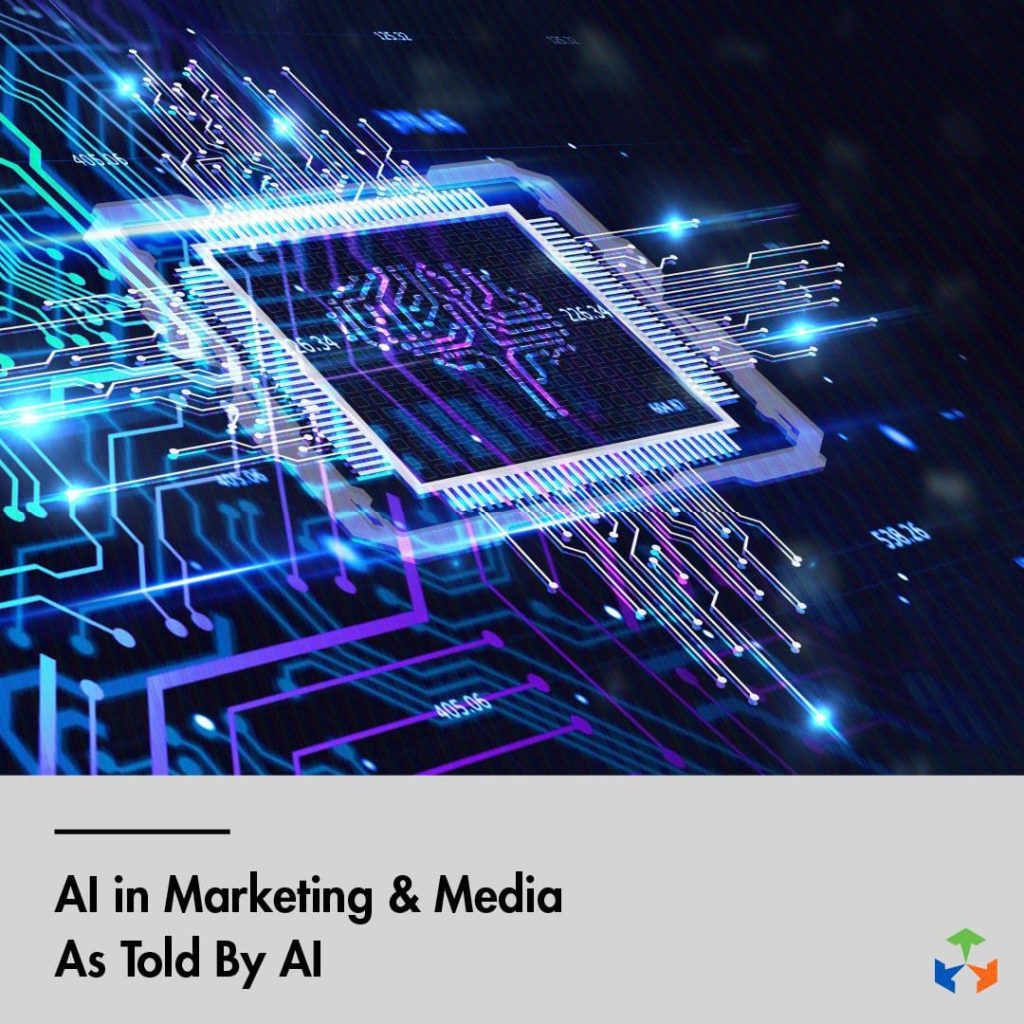AI in Marketing & Media As Told by AI

Note: This blog was written by AI software. It was prompted to describe an overview of AI being used for content creation. It was given further prompts to expand on subjects it had mentioned. This took five rounds of prompts and eight minutes to “write” with free AI software. The writing has been edited for grammar and mechanics.
Artificial intelligence (AI) writing, specifically using language models like ChatGPT, have the potential to revolutionize the way we think about creating and distributing content.
The AI language model ChatGPT works by being trained on a large dataset of text, such as books, articles and websites. The model then uses the information to generate new text that is similar to the training data. The model is able to generate text based on a given prompt or context; making it a powerful tool for generating content.
In the field of media, AI writing can be used to generate news articles, social media posts and even entire books. This can save time and resources for media companies allowing them to produce more content in less time. Additionally, AI writing can also be used to personalize content for individual readers making the experience of consuming media more tailored to their interests.
In the realm of marketing, AI writing can be used to generate product descriptions, ad copy and even entire marketing campaigns. This can help companies reach their target audience more effectively and efficiently. For example, using AI writing to generate personalized email campaigns or social media posts for different segments of customers. Additionally, AI writing can also be used to analyze customer feedback and create personalized responses improving the overall customer experience. AI writing can also be used for creating chatbot responses, voice assistants and other conversational interfaces.
AI writing also has potential in the field of coding, as it can be used to generate code based on a given prompt or content. This can save time and resources for developers, allowing them to focus on more complex tasks. This technology is already being implemented in some companies, with AI-generated code being used for tasks such as data pre-processing and code refactoring. In WordPress development, AI can be used to generate codes for themes, plugins and even entire websites. It can assist in simple custom functions.
However, AI writing also has implications for society. One major concern is the risk of misinformation and propaganda. With the ability to generate realistic-sounding content, AI writing can be used to spread false information or manipulate public opinion. This can have serious consequences for democracy and civil society. To mitigate this risk, regulations may need to be put in place to ensure that AI-generated content is transparently labeled and that there are mechanisms to correct or remove misinformation. Additionally, the use of AI writing in the workplace could lead to job displacement for writers and other content creators. To address this, measures such as retraining programs and policies that promote the upskilling of workers may be implemented.
Overall, while AI writing has the potential to greatly benefit industries such as media, marketing and coding, it is important to consider the potential ethical implications and work to mitigate any negative effects on society. It is important to have proper regulations in place to ensure that AI-generated content is transparently labeled and that there are mechanisms to correct or remove misinformation. It is also important to consider the impact on the workforce and the creative process.









